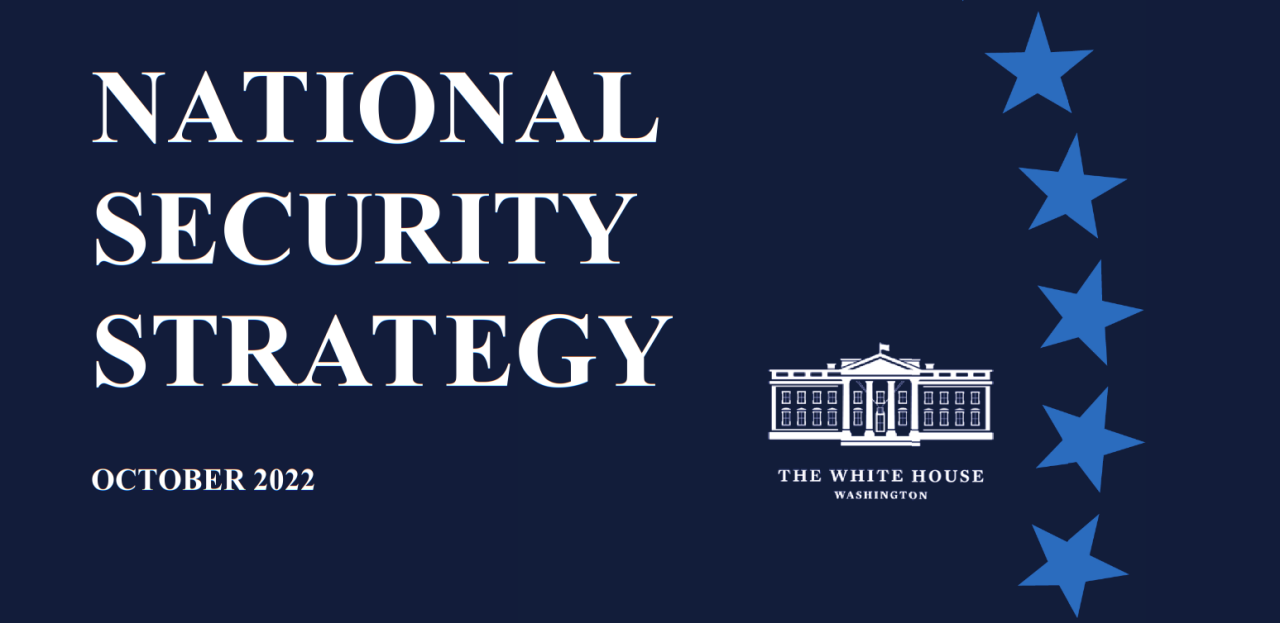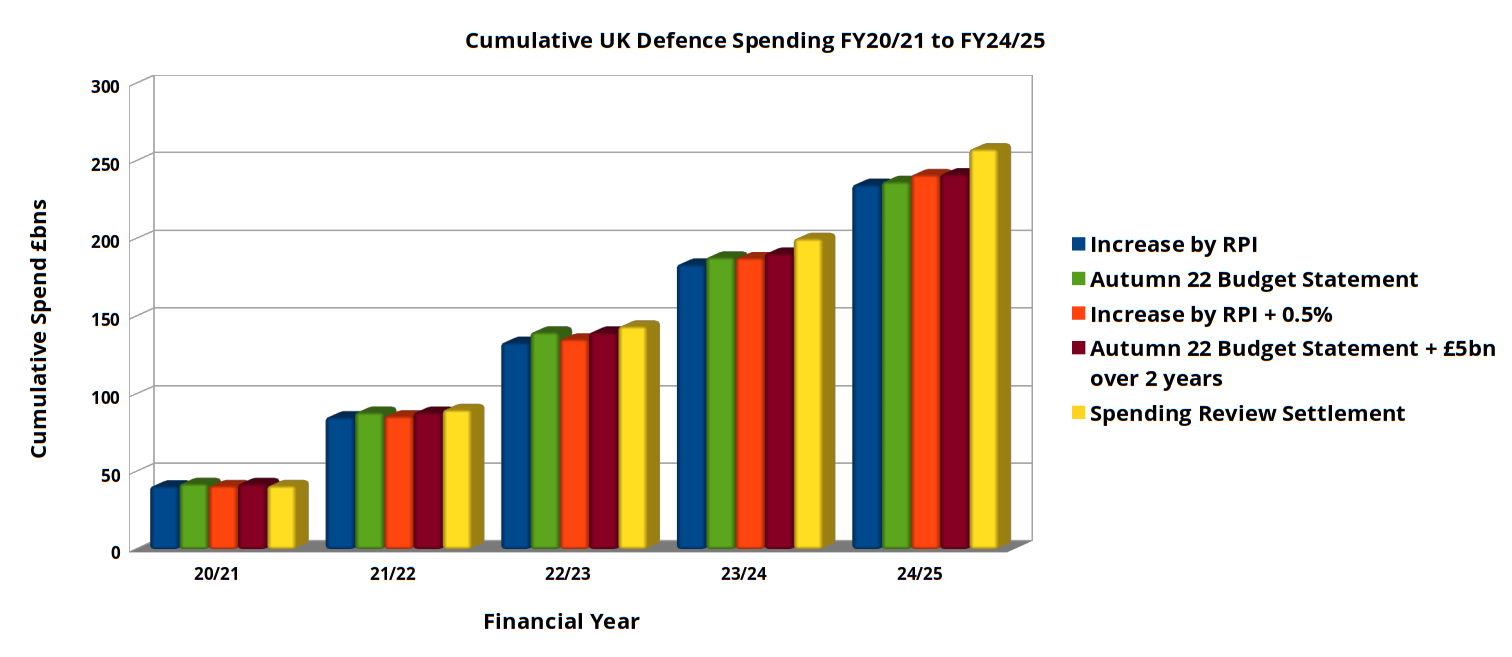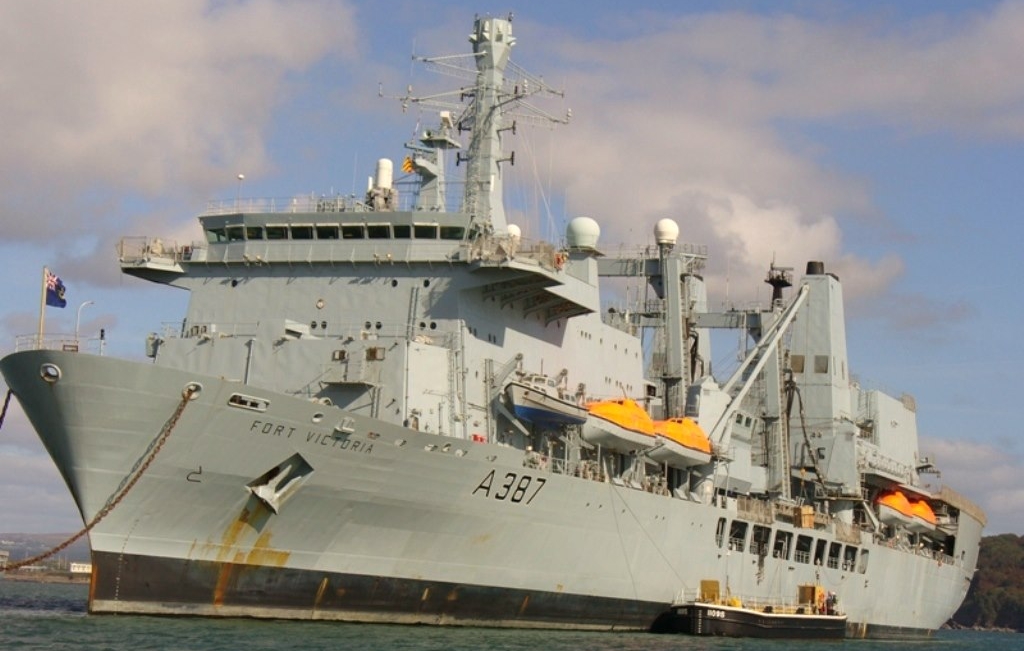Biden's Security Strategy - what does it mean for the UK and other allies?

In October, the Whitehouse published the Biden-Harris Administration's National Security Strategy, followed by the US Department of Defense with their updated National Defense Strategy. These documents provide some key insights into US strategic thinking following a difficult couple of years that have challenged the world with the Pandemic, natural disasters and major international supply-chain disruptions in addition to renewed Russian aggression in Ukraine and an increasingly assertive China.
"our alliances and partnerships around the world are our most important strategic asset and an indispensable element contributing to international peace and stability"
The good news for the free world is that this is a very internationalist document, peppered with words such as allies, partnerships and cooperation, that acknowledges the leadership role of the US as well as recognising the enlightened self-interest in promoting and defending freedom and democracy around the world.
"we will count on our Allies to continue assuming greater responsibility by increasing their spending, capabilities, and contributions"
That's not to say that a free ride is on offer - it is clear that the US rightly expects allies to step up and contribute, although recent Russian aggression has focused the minds of some of the previously reluctant European allies and hopefully the NATO defence spending guideline of 2% of GDP minimum will no longer be viewed as optional.
"The PRC and Russia are increasingly aligned with each other but the challenges they pose are, in important ways, distinct"
It's no surprise that Russia and China are identified as key threats, but the language and strategy presented for the two are very different. China is "ambitious" and "assertive" whereas Russia is "aggressive" and "dangerous". The clear and present threat that Russia poses to peace in Europe is abundantly clear, as is the role of NATO in constraining it.
"The PRC is the only competitor with both the intent to reshape the international order and, increasingly, the economic, diplomatic, military, and technological power to do it"
The strategy notes the global ambitions of China and its pursuit of those aims by technological, economic and diplomatic as well as military means. China uses its economic might to secure supplies of raw materials crucial to 21st Century supply chains through "belt and road" initiatives in Africa and the Indo-Pacific, as well as building influence in and over international institutions and standards-setting bodies affecting critical infrastructure such as telecommunications.
US commitment to support Taiwan through the Taiwan Relations Act is re-stated, and the ambiguous 'One China' policy of neither supporting Taiwanese independence or the use of force or coercion by China continues. Nonetheless, the importance of China in global supply chains is recognised and "responsible competition" is promised. Indeed, the need to cooperate broadly with competitors and less friendly nations on global challenges such as climate change, energy security, pandemic response, food insecurity, arms control and terrorism is clearly stated.
"Africa’s governments, institutions, and people are a major geopolitical force, one that will play a crucial role in solving global challenges in the coming decade"
Russia's established military links and China's growing geo-political influence on the continent of Africa have brought a new emphasis within the Biden-Harris Security Strategy. The ambivalence towards Russia's escalated territorial ambitions in Ukraine have not gone unnoticed, with 17 African nations abstaining from the UN motion condemning Russian aggression, and a further 8 choosing not to participate. With access to vital natural resources, and forming a significant voting bloc within many international institutions, it is becoming more important than ever to support democracy, peace and prosperity on the African continent, and the US will seek to work more closely with African nations along with regional bodies such as the African Union and African Continental Free Trade area. Hopefully the UK and European Union will work with the US to counter-balance the established and growing Russian and Chinese influence.
"To outcompete our rivals and tackle shared challenges, America will need to maintain and refine its competitive edge by making critical domestic investments"
The strategy identifies China as the "pacing challenge" and recognises the need for strategic public investment as "the backbone of a strong industrial and innovation base". A modern industrial and innovation strategy is promised to bolster resilience and secure infrastructure and supply chains. The previously announced CHIPS and Science Act provide US$280bn of investment critical sectors such as semiconductors, advanced computing, next-generation communications, clean energy and biotechnologies.
The concept of "Integrated Deterrence" is introduced in recognition that modern conflicts may be conducted below as well as above traditional thresholds of military action, such as cyber attacks or disruption to food, water and energy supplies. For allies, this entails a commitment to investment in interoperability and joint capability development, cooperative posture planning, and coordinated diplomatic and economic approaches.
"Incorporating allies and partners at every stage of defense planning is crucial to meaningful collaboration"
The lessons from the Ukraine conflict and the West's support with the supply of weapons has highlighted the importance of a strong defence industrial base, as well as the ability to innovate in response to a rapidly evolving battlefield. The promise to "also seek to remove barriers to deeper collaboration with allies and partners" is very welcome from the point of view of the UK and other allies. It will be interesting to see how this manifests - for instance, will it extend to further reform of the International Traffic in Arms Regulations (ITAR)? ITAR continues to be a stumbling block for US allies who, without the economies of scale of US Government programmes, rely on the ability to export products to support their defence industrial bases. Initiatives such as Collaborative Open Systems Architecture (COSA) potentially offer enormous benefits to interoperability as well as rapid capability enhancement, but if the underlying technologies are subject to ITAR in its current form, the downstream export restrictions will act as a disincentive to collaboration.
CONCLUSION
US allies will view this as a welcome and positive document, confirming US commitment to peace and democracy around the world via cooperation and strong international institutions. But there is no doubt that allies in Europe and elsewhere need to match words with investment in defence and security as our common adversaries advance their military strength and technology. Expansionist authoritarian regimes need to be deterred by alliances of like-minded democracies around the world standing together to present a united front, underpinned by strong and modern armed forces.




